
9 minute read
What do we know about the British?
LEAD-IN
Discuss the following questions. 1. Do you think people in different countries differ from one another? 2. In which of the following are differences most likely to be found: a. culture b. tradition c. character d. habits e. taste f. fashion g. food h. music? 3. Do you think that any of the following opinions about the British are true? British people are reserved and formal. They drink a lot of tea. They constantly talk about the weather. They like queuing. They always carry umbrellas. They never talk to people they do not know.
Advertisement
READING
The following parts of sentences have been removed from the text. Read the text and decide in which numbered gap each part should go.
A a country of mixed culture B this is less true today C at five thirty D person does for two or three hours a day E during the twentieth century
Nowadays, there is no such thing as a typical British family because it has changed a lot (1)___________. However, we can still talk about average British families, which are small, with only one or two children. The British prefer to live in houses rather than flats and the average British family lives in a semi-detached house with a garden. Many of the houses in cities are narrow terraced houses (three or more houses joined in a row), with only a small yard at the back.


As for their daily routine, the British tend to have a big breakfast before they go to work, while lunch or dinner (the name depends on where you live in the country) is normally eaten between 12.30 p.m. and 1.30 p.m. with work colleagues or classmates. Most people finish work (2) _______________ and it often takes them at least one hour to get home so people usually have their evening meal (known as dinner or tea) between 6.00 p.m. and 7.30 p.m. That still leaves time for a snack before bedtime known as ‘supper’.
13
Saturday was traditionally the day for shopping and Sunday the day for rest, although (3)___________. However, many people still see Sunday as a chance to have a big dinner with the whole family around the kitchen table. The most popular evening entertainment is watching television or a DVD, which the average (4)____________. They also like going out: visiting friends or going to the cinema, a restaurant or pub. The most popular hobby for adults is gardening and the most popular sports are football, rugby, cricket, tennis and golf.
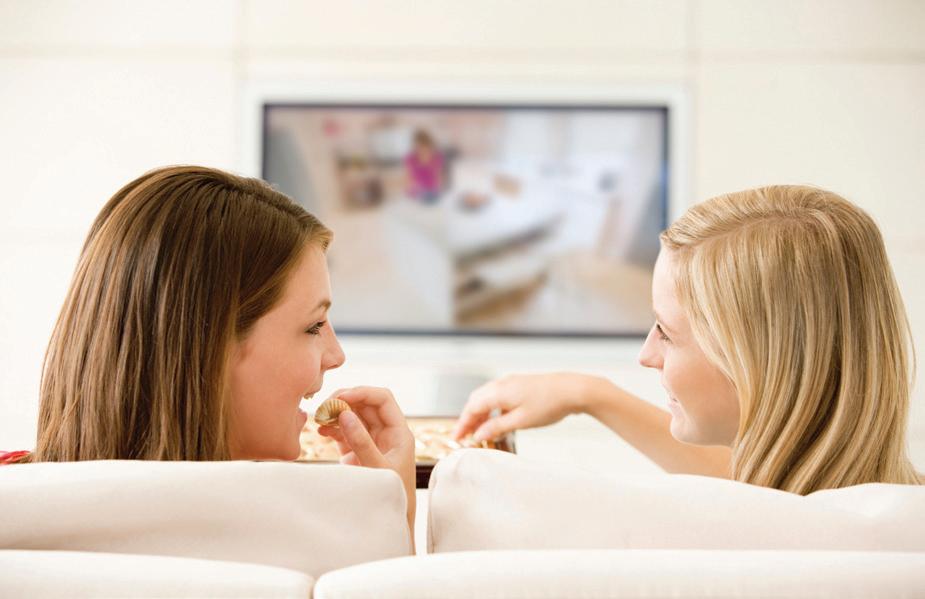
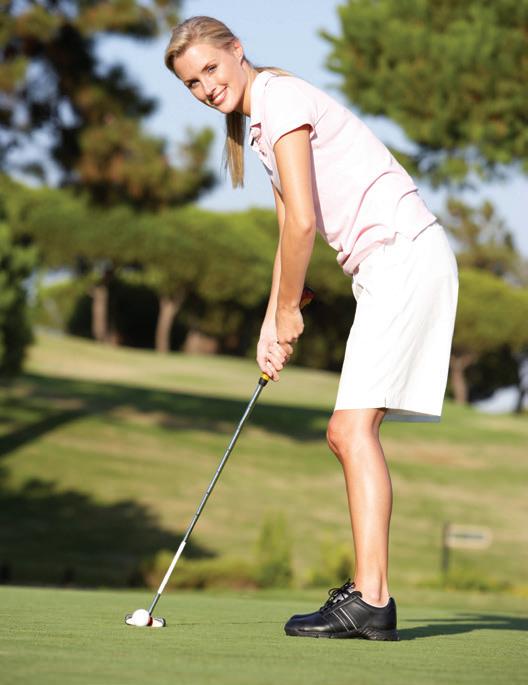
Foreigners think the British are reserved in their manners, dress and speech and it is true in many ways. They are famous for their politeness (you are always expected to say ‘Please’, ‘Thank you’ and ‘Excuse me’), self-discipline and especially for their sense of humour. In spite of their views, Britain is increasingly becoming (5)_______________, which means that stereotypes of the British are less and less true and often leads to the question ‘What do we mean by British today?’
14 Glossary
semi-detached – a house joined to another by one shared wall to tend – to be likely to behave in a particular way; to have a tendency manners – ways of behaving or speaking stereotype – a fixed general idea that people have of someone or something

COMPREHENSION
1 Answer the questions. 1. What can you say about the average British family? 2. What are the eating habits of the British? 3. What are their national characteristics said to be? 4. What can you say about the usual working day of the British?
2 Say whether these statements are true or not. If not, correct them. 1. The British prefer to live in apartments. 2. They have lunch with the members of their family. 3. Saturday is traditionally the day for shopping. 4. The British are known as a nation of gardeners. 5. All stereotypes of the British are true. 6. The British are famous for their politeness.

VOCABULARY
a c b
1 Match the word on the left with the word on the right that has a similar meaning.
1. politeness 2. average 3. entertainment 4. adult 5. row 6. increasingly a. ordinary b. more and more c. good manners d. line e. grown-up f. amusement
2 Match the words on the left (1-6) with the words that have the opposite meaning (a-f) on the right.
1. join 2. narrow 3. typical 4. reserved 5. foreigner 6. polite a. outgoing b. rude c. wide d. native e. separate f. uncharacteristic
SPEAKING
1 Family life in your town
Describe the average family from your town. Think of the following: working hours / daily routine / entertainment / hobbies / types of homes
2 England has many types of homes. Look at the pictures and describe the houses.
Say what you like or dislike about them and which you would prefer to live in.
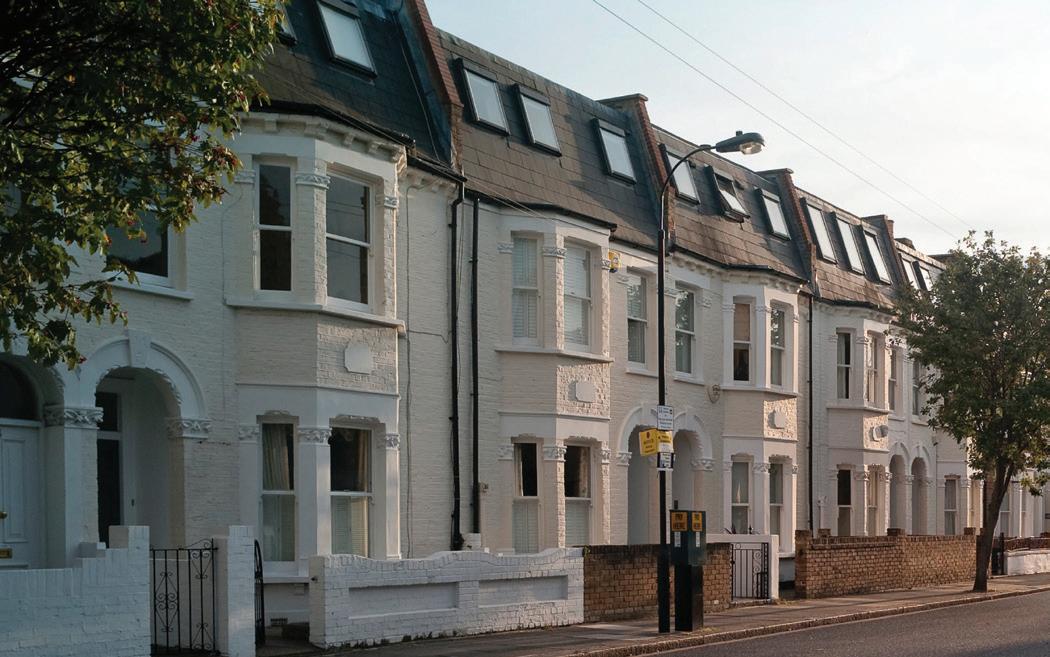
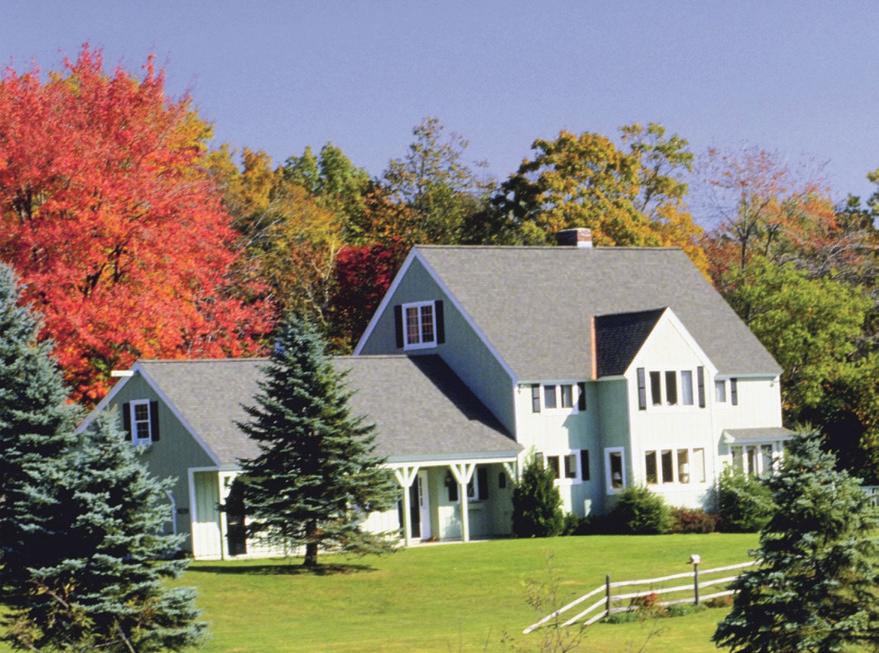
15
16 GRAMMAR
STATE AND ACTIVITY VERBS
State verbs are verbs which are not normally used in the continuous tenses because they describe a state rather than action. These include: verbs of thinking and opinion: believe, know, mean, realize, etc.
I think you’re wrong. / We feel this letter should be changed. verbs which express feelings/emotions: adore, dislike, despise, hate, like, etc.
They dislike me because of the way I’m living. verbs of the senses: hear, see, feel, taste, etc.
I hear someone talking. some other verbs:be, contain, deserve, seem, look (= seem), matter, weigh, come from, resemble, need, belong, possess, etc.
This medicine contains aspirin. / Mark weighs 70 kilos. / It belongsto my father. Note: Some state verbs can be used in the continuous, but there is a difference in meaning:
E.g. I’m thinking about my holiday. (= I am considering) I think she is an honest person. (= I believe) Are you seeing Tom today? (= Are you meeting Tom?) Ann is smelling a flower. (= an activity)
PRACTICE
1 Complete the table with the state verbs below.
understand, love, suppose, smell, want, taste, care, prefer, mean, own, wish, recognize, remember, expect, consider, look like, forget, agree/disagree, fit
STATE VERBS
feelings and emotions
like ___________________ ___________________
other verbs
be __________________ __________________
the senses
hear ___________________ ___________________
thinking and believing
know ____________________ ____________________
2 Complete the sentences with the verbs in the correct form. Use the present continuous tense where possible. 1. I _________________ you are feeling better. (see) 2. The green light _________________ you can go. (mean) 3. We __________________ a gradual improvement in sales of new cars. (expect) 4. Jim __________________ the soup. (taste) 5. He __________________ about asking his boss for a raise. (think) 6. I ____________________ you think it’s funny. (believe) 7. I’m sorry but I _________________what you want. (not understand) 8. This perfume __________________ nice. What is it? (smell)
KEY WORD TRANSFORMATIONS
Complete the second sentence so that it has a similar meaning to the first sentence, using the word in bold. You can use two to five words including the word given. Don’t change the word given. Study the example. My sister hasn’t bought a wedding dress yet. /looking My sister is still looking for a wedding dress.
1. We have made arrangements for a party on Sunday. /having We ________________________ a party on Sunday. 2. Do you have any plans for Saturday evening? /doing What _______________________________ Saturday evening? 3. Is this car yours? /own ____________________________ this car? 4. What is your sister’s appearance like? /look What __________________________ like? 5. She hasn’t woken up yet. /sleeping She _____________________________.

COMMUNICATION
1 Expressions used … when someone is arriving Welcome! Welcome back! It’s good to meet/see you (again).
2 General greetings and inquiries How’s it going? (=How are you?) How’s everything?
. . . when someone is leaving It’s been nice talking to you. Have a good/nice day. Have a nice trip. Keep in touch.
3 Asking about present activities What’s up? What’s happening?
Conversation practice
Roleplay the following situations with a partner:
1 Arriving
a) Your partner has just arrived at your home. What do you say? b) You haven’t seen your partner for a long time. What do you say? c) Your partner has just arrived at the airport in your city. Welcome him/her.
2 Leaving
a) After a short conversation, your friend has to leave. What do you say to him/her? b) You are seeing your friend off at the airport. What do you say? c) Your partner is leaving a party that you hosted. What do you say?
17
CULTURE
Culture, among other things, is a word for people’s way of life and the way they do things. Here are a few tips on how to behave in Great Britain or among the British.

• The usual formal greeting is ‘How do you do?’ It is a greeting, not a question and the correct response is to repeat ‘How do you do?’ You say this when shaking hands with someone. An appropriate response to an introduction is: I’m pleased to meet you. / Nice to meet you. / Pleased to meet you. It is only when you meet friends whom you haven’t seen for a long time that you would kiss their cheek. In Britain, one kiss is generally enough. If you want to introduce yourself to someone, extend your hand for a handshake and say ‘Hello, I am …’. The greeting can be Hi, Hello or Good morning / Good afternoon when you arrive at school or work. • Say ‘Yes, please’ or ‘No, thank you’ when you are offered something to eat or drink. • If you accidentally bump into somebody, say ‘Sorry’. • Say ‘Excuse me’ if someone is blocking your way and you would like them to move. • Stand in line and wait patiently for your turn (when boarding a bus, for instance). • Avoid talking loudly in public. • Do not ask personal questions. • Never speak at the same time as someone else. • When you don’t know how to start a conversation, make comments on the weather.
18 FAMOUS QUOTES
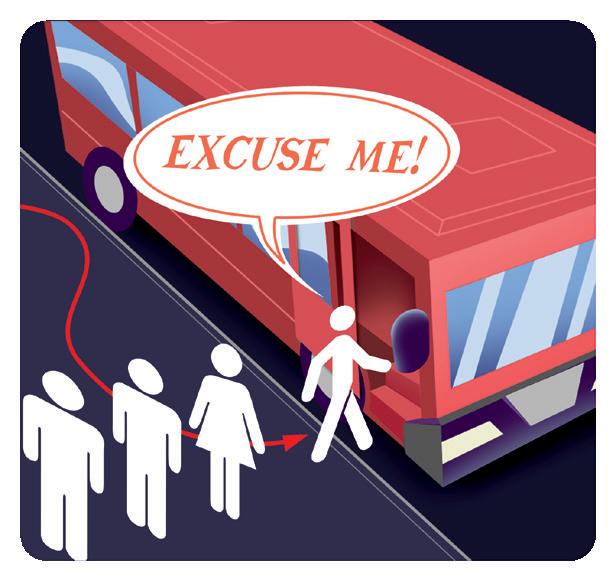
Explain the meaning of the following thoughts. • The less routine, the more of life. (Amos Bronson, American writer) • Learn from yesterday, live for today, hope for tomorrow.
IDIOMS & FIXED PHRASES
Underline the correct word and explain the fixed phrases.
1. I think if you tell people how difficult the situation is, you will only make/do the
matters worse.
2. We can find articles on that subject once in a blue moon/sky. 3. Keep in mind/head that we can never be sure what to expect.






